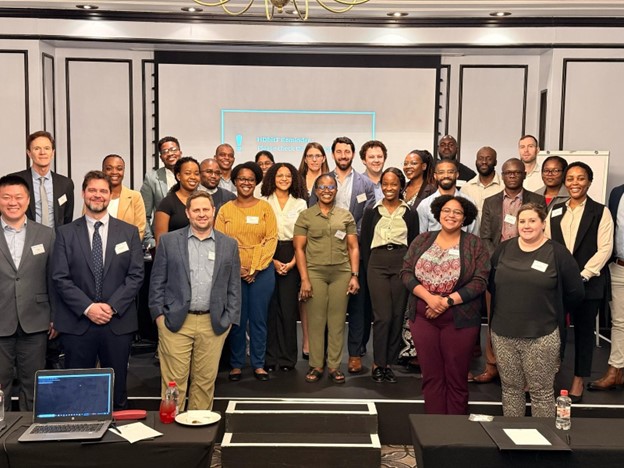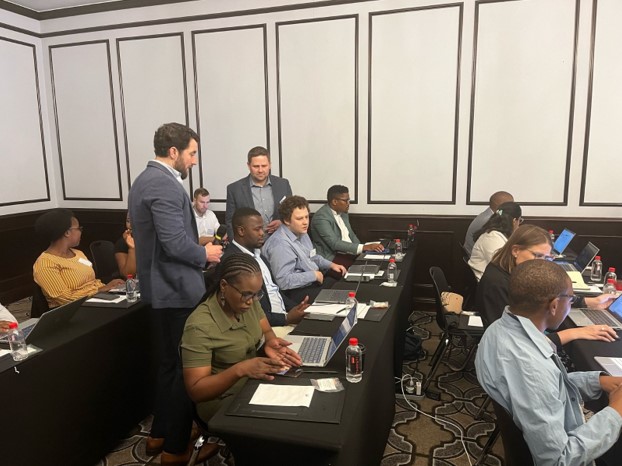
How can South Africa design policies that foster sustainable economic recovery in a post-pandemic world? That question took center stage as UN DESA, in partnership with the National Treasury and the Trade Law Centre, convened a training workshop in Cape Town from 3 to 7 March 2025. The five-day program provided nearly 30 government officials, researchers, and economists with hands-on experience in using cutting-edge policy simulation tools to analyze and shape the country’s long-term economic strategy. As part of the implementation of the project “Rebuilding Better and Greener from the COVID-19 Pandemic through Enhanced Design and Implementation of Sustainable National Recovery Strategies Based on Policy Simulations”, this second training workshop built on a previous series of consultations and presentations on the applicability of this tool. The focus of this workshop was on deepening participants’ expertise of the South African Overlapping Generations Macroeconomy Model (OG-ZAF)—a sophisticated open-source tool used to assess the long-term impact of fiscal policies, social spending, and economic reforms. Participants engaged in a structured learning experience that combined theoretical insights with practical applications. The workshop covered: • Understanding the OG-ZAF Model: An overview of the model’s structure and its role in macroeconomic analysis. • Data Integration & Calibration: Hands-on training in incorporating national economic data into the model for accurate simulations. • Policy Simulations: Step-by-step exercises on setting up and running simulations to evaluate fiscal policies, social spending, and economic reforms. • Interpreting Results for Policy Insights: Techniques for analyzing model outputs and translating findings into actionable policy recommendations. • Collaborative Model Management: Training on using digital tools like Python, Git, and GitHub for data management and ongoing model development. In addition, the workshop explored topics such as social development with a focus on education, the distributional impacts of VAT increases, fiscal sustainability with national health insurance, and the effects of fiscal consolidation through VAT increases and spending cuts. Participants also examined how shocks to international capital flows and productivity improvements (including TFP shocks) might affect the country’s economic trajectory. By equipping key stakeholders with these advanced modeling skills, this initiative strengthens South Africa’s ability to develop resilient, data-driven policies. With a more robust analytical foundation, policymakers are better prepared to navigate challenges and rebuild “better and greener” in the post-pandemic era.

For More Information
Please see our newsletters.